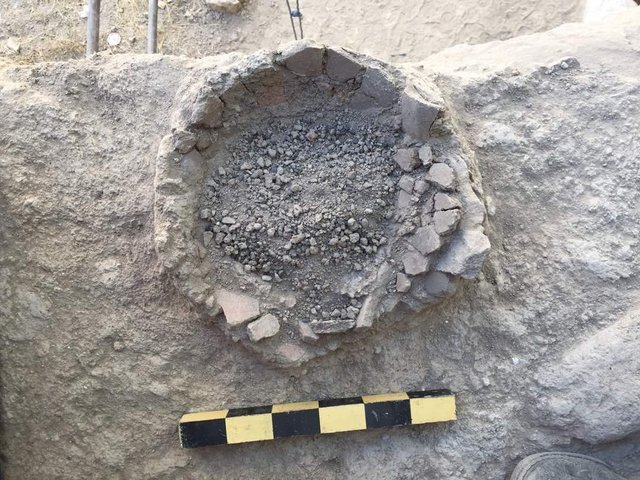3000-year-old seeds unearthed in northwest Iran

TEHRAN – A team of Iranian archaeologists has recently found some wheat and weed seeds which are estimated to date from some 3,000 years ago.
The team unearthed an earthen bowl that contained some wheat, weed and probably barley seeds during a stratigraphy project in the centuries-old Sardar Castle located in Bukan, northwestern province of West Azarbaijan, ISNA reported on Thursday.
A stone mortar and pestle were also recovered next to the bowl, the report added.
Earlier this month, the project also yielded vestiges of architectural elements, potteries and stone tools estimated to date from the Iron Age.
Bukan and its surroundings embrace variety of historical sites and monuments, most of which inscribed on the National Cultural Heritage list.
According to Encyclopedia Iranica, the term Iron Age in Iran is employed to identify a cultural change that occurred centuries earlier than the time accorded its use elsewhere in the Near East, and not to acknowledge the introduction of a new metal technology. “Iron artifacts, in fact, were unknown in Iran until the 9th century BC,” the encyclopedia suggests.
AFM/MQ/MG
Leave a Comment